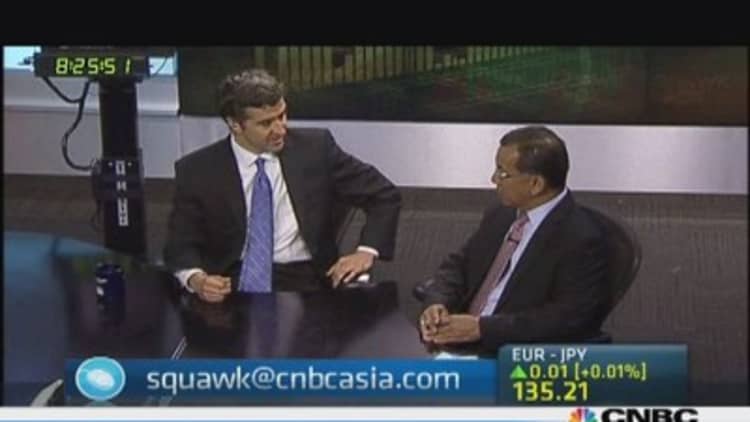Indonesia's economy grew at its weakest pace in nearly four years in the third quarter, throttled by weak exports and slowing consumption as higher fuel prices bite.
Southeast Asia's largest economy faces challenges from a widening current account deficit, which has made it a target of portfolio investors shifting funds out of emerging markets and knocked the rupiah to 4-1/2-year lows.
The pressure on the rupiah has eased somewhat as the Federal Reserve delayed winding down monetary stimulus, but a renewed attack on Asia's worst performing currency could resume with speculation over the timing of U.S. tapering.
(Read more: This emerging giant's growth may slow to 2009 levels)

Weak exports hampered by a tentative global recovery make it harder for Indonesian policymakers to keep the country's deficits at a sustainable level as growth slows, analysts say.
Gross domestic product in the July-September quarter grew 5.62 percent from a year earlier, in line with expectations and compared with 5.81 percent growth in April-June. A Reuters poll had projected growth of 5.6 percent from a year earlier, and 2.93 percent against the previous quarter.
(Watch now: Challenges facing Indonesia's Bank Danamon)
Bank Indonesia has a target of 5.5-5.9 percent growth for the full year.
"From the domestic side, the slowdown means demand for dollars also fell but not much. So, the impact (of GDP data) to the rupiah is not significant. However, the Fed's tapering is a different issue since it will impact the hot money," said David Sumual, economist at BCA in Jakarta.
The rupiah traded at 11,385 per dollar after the announcement against 11,345 late on Tuesday.
(Watch now: Indonesia Finance Minister: No capital controls)
Transport and communication was the strongest growing sector in the third quarter, expanding 10.46 percent from a year earlier, while agriculture, utilities, and manufacturing saw weaker growth, the statistics bureau said.

Private consumption picked up in the third quarter, while government spending accelerated.
Indonesia was popular with investors after it secured investment grade status in 2011 and 2012 from two rating agencies. But its glow as an investor haven is fading.
(Read more: Is Indonesia about toregain its Asian tiger stripes?)
Data from investment board for July-September showed commitments in foreign direct investment slowed to 18.4 percent year-on-year, partly due to a fragile global recovery.
The G20 economy, heavily relies on imported goods to meet domestic demand, posted a sizeable current-account deficit that hit 4.4 percent of GDP in April to June period.
The rupiah has lost 15 percent so far this year as foreign investors dumped Indonesian assets on concerns over its ability to fund the economy and some of its economic policies.
Indonesia will hold parliamentary elections in April, followed by a presidential election in July.
— Follow CNBC on Twitter: @CNBCWorld


